LIFTT
LIFTT – Learning Independence For Today and Tomorrow
LIFTT Overview
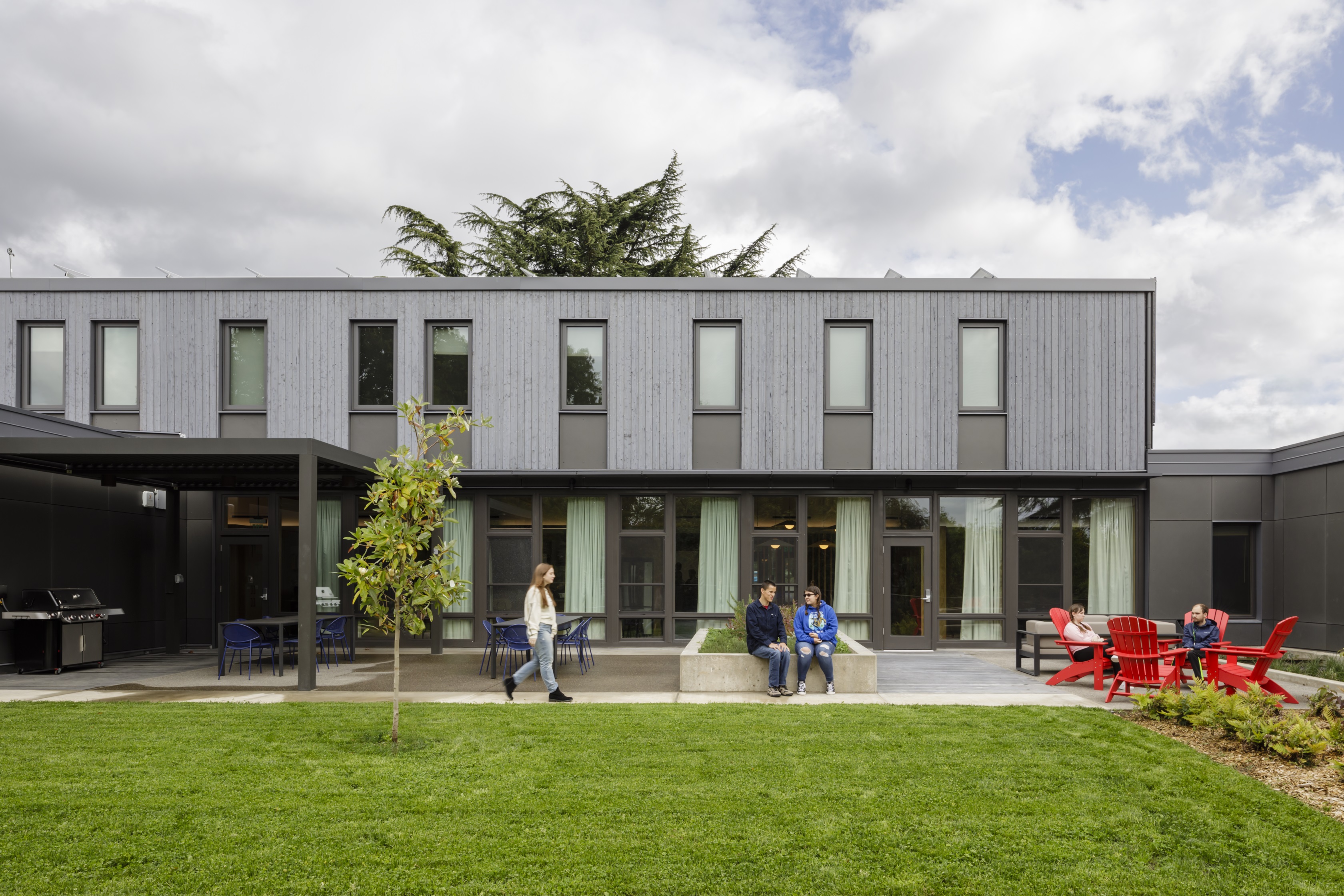
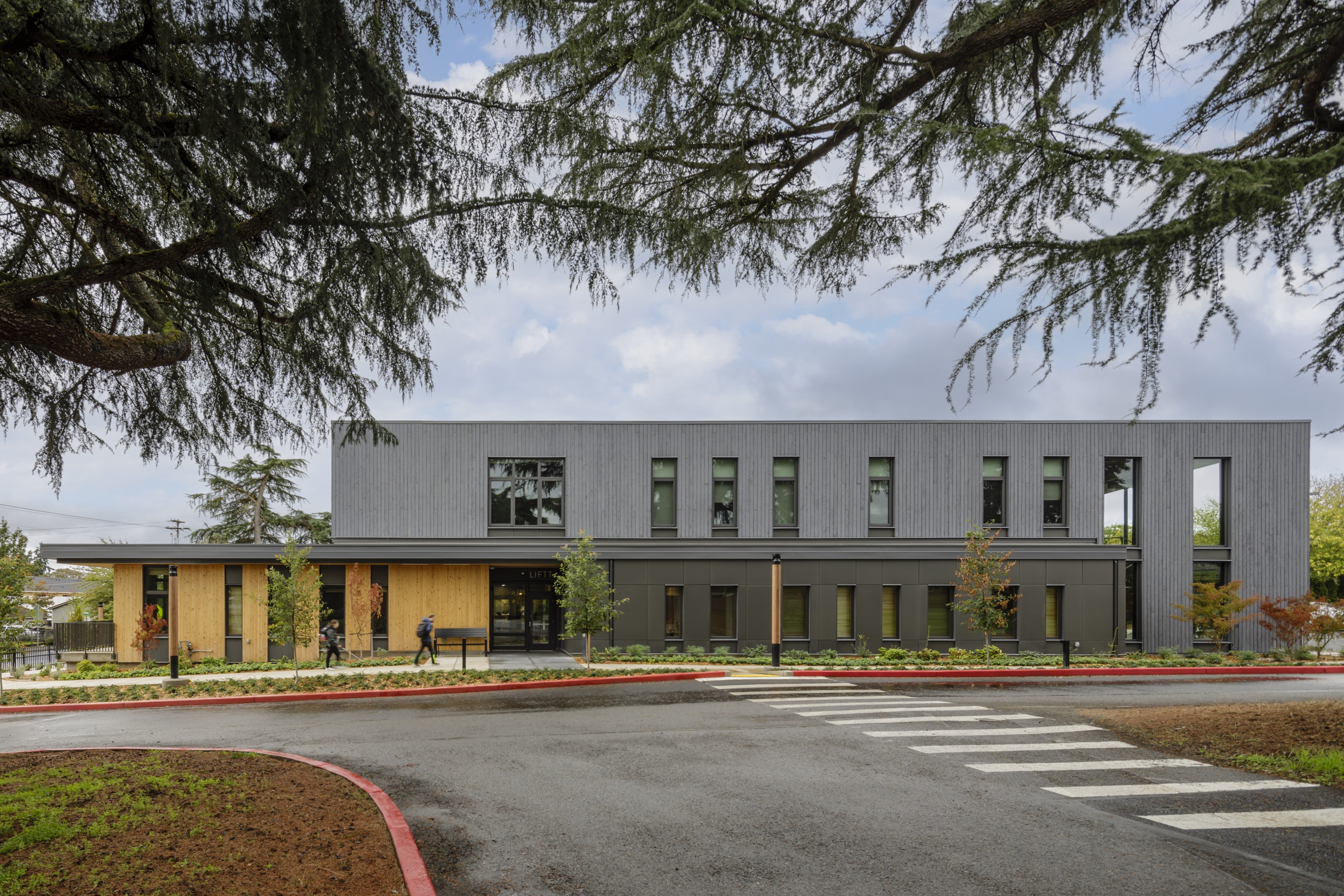
The Program
LIFTT is a 10-month, residential independent living skills training program for young adults between 18-21 years old. The program is a partnership between the Washington State School for the Blind and the Washington Department of Services for the Blind. Participants live on site from September-June, including weekends and learn to be responsible for all aspects of their adult life.
The objective of the LIFTT program is to provide our participants with an opportunity to experience independence in a safe environment before they venture into less protective settings as young adults. Instruction is not aimed at teaching “basic independence skills”. Rather, it is designed to expand your independence through authentic practice as you manage your own day-to-day life. The LIFTT Program focuses on nine areas of core competence:
- Personal Care
- Kitchen Skills
- Household Management
- Financial Management
- Time Management
- Community Access and Travel
- Interpersonal Relationships
- Assistive Technology
- Vocational Skills
While in LIFTT, you are required to pursue your own course of post-secondary education, vocational training, job search, and work in collaboration with your Department of Services for the Blind Vocational Rehabilitation Counselor. You will have access to mentorship and guidance from LIFTT staff and other participants as well as opportunities for direct instruction in Independent Living Skills, Assistive Technology, Braille, and Orientation and Mobility.
Participants in the LIFTT program deliberately spend a good deal of their time unsupervised by staff. If they did not, they would not have the opportunity to assume personal responsibilities for their day-to-day activities.
The Living Space
LIFTT is housed on the ground floor of the Transition Center at the Washington State School for the Blind, within short walking distance to Clark Community College and multiple lines of public transportation. The building is fully wheelchair accessible and features adjustable lighting throughout, Braille wallpaper, and a curation of tactile art.
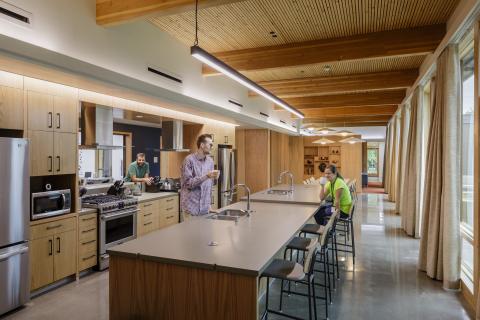
Participants share a large, communal double kitchen that is fully equipped with a wide range of appliances and accessories. You will share space in one of the refrigerators and freezers as well as the large walk-through pantry. You are encouraged to experiment with a variety of cooking techniques and food preparation strategies.
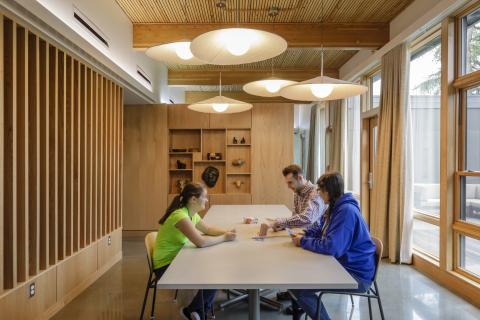
A communal dining area is located just off the kitchen.
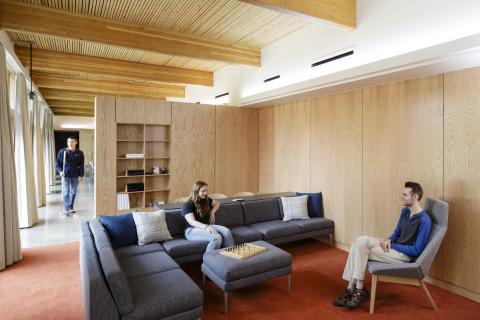
The living room features a fully accessible TV and surround sound system.
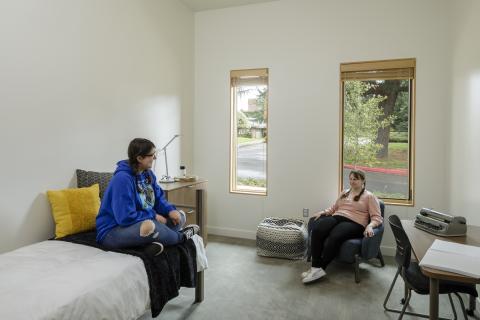
Each participant is assigned their own room with a private bathroom. The room is equipped with a twin bed, nightstand, dresser, wardrobe closet, table, and chair. You are responsible for cleaning supplies, linens, and personal items.
The “backyard” at LIFTT has a large patio with outdoor dining and lounge areas, raised garden bed, gas grill, a covered section with a retractable roof, and a sizeable lawn.
Considerations for Admittance
The LIFT program is based on the premise that you have a “beginning level” of independent living skills. To be considered eligible to apply for the LIFTT program, participants MUST...
- Be able to perform and consistently demonstrate, without prompting, complete independence in daily personal care skills such as toileting, bathing, use of personal hygiene products such as toothbrush, soap, etc.
- Have the independent skills to manage simple cooking and food handling tasks, such as, cereal, sandwiches, etc. Cooking instruction and oversight from LIFTT staff does not occur at every meal.
- Be able to self-manage their own conduct and be able to get along with others in a communal-living setting without interfering with the activities of others.
- Be able to maintain basic personal safety both in the residence hall and in the community. LIFTT staff is not always in direct supervision of LIFTT participants.
- Be able to support their own living expenses – food, cleaning supplies, recreation, etc. Most participants receive an SSI benefit: however, SSI is not a requirement for entry in the program.
- Be their own guardian. Lesser forms of guardianship, such as medical power of attorney, will not disqualify an applicant from participating in the program, but LIFTT staff may request to discuss this with the applicant and their family.
- When making decisions regarding admittance, participants who are enrolled in a postsecondary education program and are a pre-ETS participant with the Department of Services for the Blind will be prioritized.
Contact: Corey Grandstaff, Director of Transition 360-947-3354 LIFTT@wssb.wa.gov